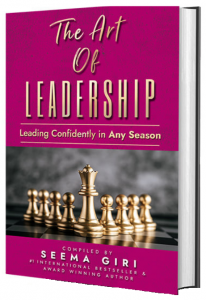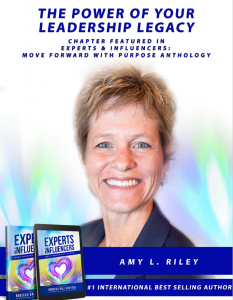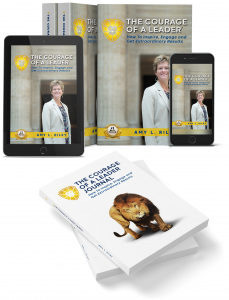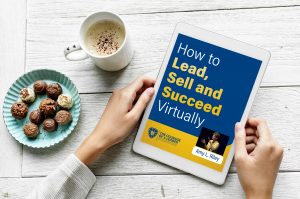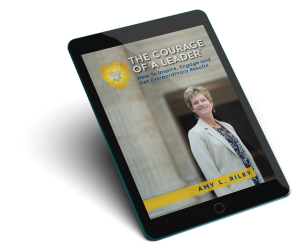Susan Inouye is a transformational executive coach and best‑selling author who helps leaders build cultures of engagement and belonging. We explore her Sawubona approach, which means “I see you,” and the five leader shifts that move teams from control to connection, conformity to seeing and accepting, expectations to intentions, authority to authenticity, and bottom‑line myopia to belonging. We learn to ask people what it takes to engage them, spot their innate gifts, and align work to strengths. We also see how receiving feedback without judgment opens trust across generations. Susan’s stories show how leaders who get present, praise the gift behind the action, and create meaningful work see retention rise and results follow. We leave with practical ways to create workplaces where we feel seen, heard, and part of something bigger.
Highlights
1. Lead with connection – Learn to be present, listen without judgment, and make people feel seen so trust and ideas flow.
2. Spot innate gifts – Identify what energizes each person and align roles and projects to those natural strengths.
3. Shift expectations to intentions – Trade rigid “shoulds” for clear intentions that encourage learning, ownership, and creativity.
4. Model authentic leadership – Share real experience, invite two‑way dialogue, and let credibility come from wisdom, not title.
5. Build belonging on purpose – Tie work to shared meaning and values so we stay engaged, resilient, and motivated.
Resources Mentioned
The Inspire Your Team to Greatness assessment (the Courage Assessment)
How can you inspire our team to be more proactive, take ownership and get more done?
You demonstrate and empower The Courage of a Leader. In my nearly 3 decades of work with leaders, I’ve discovered the 11 things that leaders do – even very well-intentioned leaders do – that kill productivity.
In less than 10 minutes, find out where you’re empowering and inadvertently kills productivity, and get a custom report that will tell you step by step what you need to have your team get more done.
https://courageofaleader.com/inspireyourteam/
About the Guest:
Susan Inouye is a transformational executive coach who has guided leaders in 600 companies across 40 industries. Her coaching blends practices of mind, heart, and body, influenced by training with a 7th-degree Black Belt Aikido sensei and insights from the HeartMath Institute. This holistic approach strengthens emotional intelligence and transforms organizations into sustainable, thriving cultures.
At the core of her work is Sawubona Leadership, inspired by the Zulu phrase “I see you,” which promotes inclusive cultures that value authenticity. A bestselling author of Leadership’s Perfect Storm, Susan highlights the influence of millennials on leadership today while also championing women leaders who create compassionate, purpose-driven organizations. Based in Los Angeles with her husband Tony, she continues to inspire leaders worldwide through coaching, retreats, and culture-building initiatives.
She can be reached at:
https://www.linkedin.com/in/susan-inouye-083384b/
About the Host:
Amy L. Riley is an internationally renowned speaker, author and consultant. She has over 2 decades of experience developing leaders at all levels. Her clients include Cisco Systems, Deloitte and Barclays.
As a trusted leadership coach and consultant, Amy has worked with hundreds of leaders one-on-one, and thousands more as part of a group, to fully step into their leadership, create amazing teams and achieve extraordinary results.
Amy’s most popular keynote speeches are:
- The Courage of a Leader: The Power of a Leadership Legacy
- The Courage of a Leader: Create a Competitive Advantage with Sustainable, Results-Producing Cross-System Collaboration
- The Courage of a Leader: Accelerate Trust with Your Team, Customers and Community
- The Courage of a Leader: How to Build a Happy and Successful Hybrid Team
Her new book is a #1 international best-seller and is entitled, The Courage of a Leader: How to Inspire, Engage and Get Extraordinary Results.
http://www.courageofaleader.com
https://www.linkedin.com/in/amyshoopriley
Thanks for listening!
Thanks so much for listening to our podcast! If you enjoyed this episode and think that others could benefit from listening, please share it using the social media buttons on this page.
Do you have some feedback or questions about this episode? Leave a comment in the section below!
Subscribe to the podcast
If you would like to get automatic updates of new podcast episodes, you can subscribe to the podcast on Apple Podcasts or Stitcher. You can also subscribe in your favorite podcast app.
Leave us an Apple Podcasts review
Ratings and reviews from our listeners are extremely valuable to us and greatly appreciated. They help our podcast rank higher on Apple Podcasts, which exposes our show to more awesome listeners like you. If you have a minute, please leave an honest review on Apple Podcasts.
Transcript
How do leaders create workplaces where people don't
Amy Riley:just show up, but truly engage, contribute and thrive? My guest,
Amy Riley:transformational executive coach and best selling author, Susan
Amy Riley:Inouye, shows us how, with her groundbreaking approach, Susan
Amy Riley:helps leaders shift from control to connection, from authority to
Amy Riley:authenticity and from bottom line myopia to true belonging.
Amy Riley:In this episode of the courage of a leader, Susan shares
Amy Riley:inspiring stories and practical shifts that will change how you
Amy Riley:lead and how your people flourish, I'm glad you're here
Amy Riley:to listen in you
Amy Riley:Welcome to the Courage of a Leader podcast. This is where
Amy Riley:you hear real life stories of top leaders achieving
Amy Riley:extraordinary results, and you get practical advice and
Amy Riley:techniques you can immediately apply for your own success. This
Amy Riley:is where you will get inspired and take bold, courageous
Amy Riley:action. I'm so glad you can join us. I'm your host. Amy Riley,
Amy Riley:now are you ready to step into the full power of your
Amy Riley:leadership and achieve the results you care about most.
Amy Riley:Let's ignite the courage of a leader.
Amy Riley:Susan, thank you for being on the courage of a leader podcast
Amy Riley:today.
Susan Inouye:You are so welcoming. I am so excited to be
Susan Inouye:here.
Amy Riley:I'm very excited to have this conversation like
Amy Riley:we're talking about something that is super critical. I'd say
Amy Riley:it's a crisis right now in our workplace, we're going to talk
Amy Riley:about how every leader out there, in their teams, in their
Amy Riley:sphere of influence, can create cultures of engagement and
Amy Riley:belonging. Cuz, of course, if someone's going to be engaged,
Amy Riley:they need to feel like they belong. And I love the ways that
Amy Riley:you think about and access this. Where do you want to start?
Susan Inouye:You know, yeah. I mean, when you talk about
Susan Inouye:cultures of belonging, this is what got me into this so many
Susan Inouye:years ago, yeah, and learning how important it was, I think I
Susan Inouye:talked to you briefly about it was because, gosh, what was it?
Susan Inouye:More than 13 years ago, I started getting calls from
Susan Inouye:executives complaining about their young people, and at the
Susan Inouye:time, it was the millennial generation. So there was so much
Susan Inouye:pain and suffering between generations, that I had to find
Susan Inouye:some kind of answer. And I guess I was looking for a method that
Susan Inouye:wasn't just based in academic or theory, but really proven and
Susan Inouye:grounded results. And that is when an executive client, he
Susan Inouye:came to me and said, Susan, I think I found your answer. And
Susan Inouye:he took me, of all places, Amy, to the ghettos of South Central
Susan Inouye:Los Angeles to meet a man by the name of Tony La Ray, who was the
Susan Inouye:founder and CEO of youth mentoring connection. And I
Susan Inouye:found out that Tony was a former CEO. He had sold a very
Susan Inouye:successful business, and for the past decade, he had been saving
Susan Inouye:and transforming the lives of:Susan Inouye:youth through his mentoring programs with unprecedented
Susan Inouye:results. Nice, yeah, and what I loved about what he was doing
Susan Inouye:was he had actually gone into the community. He asked these
Susan Inouye:young people what it would take to engage with them, and they
Susan Inouye:told him, and over the years, he created what he called the gift
Susan Inouye:centered approach. Now the gift centered approach was at the
Susan Inouye:heart of the way he led, which he called salbona leadership.
Susan Inouye:And salbono was Zulu for I see you, as in seeing the whole
Susan Inouye:person. Mm, hmm. So I wanted to see this in action. He invited
Susan Inouye:me to a mentoring program that he was having, and I gotta tell
Susan Inouye:you, when I went there to the Baha center years ago in South
Susan Inouye:LA, I was taken aback, because here was a community of people
Susan Inouye:of all different generations, genders, ethnic backgrounds and
Susan Inouye:the deep connection that they had and that the way they
Susan Inouye:engaged each other that brought out the best in who each other
Susan Inouye:was. I remember after that session, I went up to him, and I
Susan Inouye:said, I need you to mentor me. I need to take this into the
Susan Inouye:corporate world. Because I not only saw a way of helping my
Susan Inouye:executives to better engage their young people, but a way of
Susan Inouye:creating cultures of belonging, yes, and so what he did was he
Susan Inouye:said, Okay, I'll mentor you. And he mentioned me, and I took it
Susan Inouye:into the corporate world over 13 years ago, I started to turn
Susan Inouye:around companies and cultures in a way. That was long term and
Susan Inouye:sustainable nice and today, Sal Bona in the gift centered
Susan Inouye:approach is in over 30 countries. It was a subject of a
Susan Inouye:book that I wrote called leadership's perfect storm, and
Susan Inouye:ere just fortunate the end of:Susan Inouye:became the number one Amazon Best Seller in leadership and
Susan Inouye:business management, and it's sold all over the world. I love
Susan Inouye:it.
Amy Riley:Susan, yeah, here you clearly talking about the gift
Amy Riley:centered approach. So of course, we want to see people's unique
Amy Riley:gifts, their unique value. But you also talked about seeing the
Amy Riley:whole person, and so we've got to accept that someone in the
Amy Riley:millennial or the Gen Z generation might be asking, How
Amy Riley:can I have your job, in fact, right? And and accepting that is
Amy Riley:part of who they are and what they're thinking of and what
Amy Riley:drives them right, accepting that that whole person
Susan Inouye:and Sawubona, it means I see you, I see and
Susan Inouye:accept because what we found Amy is when we see and accept people
Susan Inouye:for who they are, they see and accept us for who we are, and a
Susan Inouye:different conversation unfolds, not one where we're lecturing to
Susan Inouye:each other with our right wrong judgments, but one where we're
Susan Inouye:listening and learning from each other with openness and
Susan Inouye:curiosity. And so this is what Millennials and Gen Zs want.
Susan Inouye:They want to be accepted for the whole of who they're. They are
Susan Inouye:their gifts, their blind spots, their strengths, their
Susan Inouye:weaknesses, their genius. And this is why salbona. They
Susan Inouye:gravitate towards Sawubona. It's not just because it was born out
Susan Inouye:of the millennial generation, but it closely aligns with their
Susan Inouye:values and their needs. And it's interesting. In having done a
Susan Inouye:lot of speaking at conferences, I have a lot of millennials
Susan Inouye:approach me and they tell me their needs, but there are three
Susan Inouye:needs that keep echoing, okay, yeah, and that's to feel heard,
Susan Inouye:to use their gifts and to have meaning and purpose in their
Susan Inouye:lives. But what's interesting when I'm speaking to a group of
Susan Inouye:leaders of all different generations. And I asked them,
Susan Inouye:Is this something that you want to every hand goes up, yeah,
Susan Inouye:because it's not a generational need, it's a human need. Yes.
Susan Inouye:This is what we all want, yes. And so the way that we enter
Susan Inouye:through salbona. In order for someone to feel heard, you have
Susan Inouye:to connect and receive. In order for a person to use their gifts,
Susan Inouye:you have to as a leader, see their gifts. In order for a
Susan Inouye:person to have meaning and purpose in their lives, you have
Susan Inouye:to create a culture where they feel a part of something greater
Susan Inouye:than themselves, and what we do is the journey to this is
Susan Inouye:through what we call the five salbuana leaderships. These are
Susan Inouye:the shifts that are so important that leaders make today to be
Susan Inouye:the kind of leaders that thrive in the 21st Century, especially
Susan Inouye:because we, you know, millennial generation right now, they are
Susan Inouye:becoming in management roles, yeah, senior management roles,
Susan Inouye:VP roles, because the age of millennials are anywhere from 29
Susan Inouye:to 44 so these Five leaderships become really, really important
Susan Inouye:that leaders transition to. So the the first one is from
Susan Inouye:control to connect and receive. There's a connection, yeah.
Susan Inouye:Second one is from conformity to see and accept. Third one is
Susan Inouye:from expectations to intentions. The fourth one is from authority
Susan Inouye:to authenticity, and the fifth one is from bottom line, myopia
Susan Inouye:to belonging. And so, yeah, if we look at the first one from
Susan Inouye:control to connect and receive, we have been trying to slowly
Susan Inouye:move away from command and control, which does not work on
Susan Inouye:the younger generation, and it really didn't work on my
Susan Inouye:generation, but we just sucked it up and we did it anyway, right?
Amy Riley:Yeah, yeah. We felt like we had to deal with it.
Amy Riley:Yep, right, exactly.
Susan Inouye:So we have to transition from control to
Susan Inouye:connect and receive. And connection is not communication
Susan Inouye:or connectivity. It's how I feel when I'm with you. So there was
Susan Inouye:a recent survey done by Korn Ferry. They do it every year.
Susan Inouye:It's called their workforce survey. And this year they had
Susan Inouye:15,000 professionals from 10 countries, and they surveyed
Susan Inouye:everything. From entry level employees to CEOs. So you have
Susan Inouye:every generation, yes, not millennials, every generation,
Susan Inouye:all five, yep. And in there, they show that there was a huge
Susan Inouye:disconnect between generations. No surprise. But what was
Susan Inouye:interesting is they would say that the boomer generation felt
Susan Inouye:that they were very much connected to Gen Z because they
Susan Inouye:clearly communicated. However Gen Z said, we don't feel
Susan Inouye:connected to boomers, and that's because connection is not
Susan Inouye:communication. It's how I feel when I'm with you. The Boomers
Susan Inouye:also thought that Gen Zs did not want to be in management roles.
Susan Inouye:Oh, and Gen Z said, No, it's not that we don't want to be in
Susan Inouye:management roles. It's that we don't want to be our manager
Susan Inouye:because they didn't like the way their managers live, right? And
Susan Inouye:then, if you go from control to connect and receive, receptivity
Susan Inouye:is a very overlooked quality of leadership, because we're taught
Susan Inouye:that it's better to give than to receive, right? But building a
Susan Inouye:body of a leader means building a body that can receive
Susan Inouye:thoughts, that can receive ideas, that can receive praise
Susan Inouye:criticism, help with openness and curiosity. And in the same
Susan Inouye:survey, which was really great, they said the companies who were
Susan Inouye:the most successful at getting their people behind change in AI
Susan Inouye:and automation, were the ones that received the voices of
Susan Inouye:their people. They created infrastructures where their
Susan Inouye:people could share their thoughts, their ideas, their
Susan Inouye:perspectives. They let them participate in the adoption, the
Susan Inouye:usage and the implementation process of AI and automation.
Susan Inouye:And this actually was so important because it allowed it
Susan Inouye:to be more closely aligned with the organizational strategy. And
Susan Inouye:so you're finding that the companies that are most
Susan Inouye:successful, they receive the voices of generations. And they
Susan Inouye:also found, in one case, that Gen they allowed Gen Z to mentor
Susan Inouye:the people at the top in AI and automation.
Amy Riley:Nice, yeah, yeah. So, yeah, I love this, Susan. Let me
Amy Riley:pause our conversation here, and I'm going to tell listeners more
Amy Riley:about you. Okay, sure, yes. Susan Inouye is a
Amy Riley:transformational executive coach with nearly two decades of
Amy Riley:experience empowering leaders across 600 companies and 40
Amy Riley:industries, her one on one coaching method integrates deep,
Amy Riley:holistic practices of mind, heart and body, honed through
Amy Riley:extensive training with a seventh degree black belt a Kido
Amy Riley:Sensei and Insights from the Heart Math Institute. This
Amy Riley:approach not only enhances emotional intelligence, but also
Amy Riley:reshapes organizational cultures into thriving, sustainable
Amy Riley:entities. Central to Susan's work we've already heard about
Amy Riley:it is the soy Bona leadership, rooted in the Zulu greeting, I
Amy Riley:see you fostering inclusive cultures, where individuals are
Amy Riley:valued for their authenticity. Her expertise extends to
Amy Riley:millennials, highlighted in her best selling book, leadership's
Amy Riley:Perfect Storm, which illuminates their impact on modern
Amy Riley:leadership. Past. Passionate about women's leadership, Susan
Amy Riley:champions their role in shaping compassionate, purpose driven
Amy Riley:organization, her influence transcends coaching to include
Amy Riley:retreats, cult culture, excuse me, culture building initiatives
Amy Riley:and mentoring programs, reinforcing her belief that true
Amy Riley:organizational formation starts with empowered leaders, which is
Amy Riley:why we're focusing on these leadership traits. Thank you for
Amy Riley:being here.
Susan Inouye:Susan, thank you so much. Amy,
Amy Riley:yeah, so I already love what you are saying about
Amy Riley:the shift from control to connect and receive. I think
Amy Riley:Susan, that it's really easy for us as human beings with our
Amy Riley:natural biases and filters to to hear and be like, oh, yeah, I
Amy Riley:like that. I like that. I like that. I don't like that, right?
Amy Riley:And then we're not fully accepting everything that's
Amy Riley:being shared with us, right? We're pulling and we're
Amy Riley:incorporating what works in our schematic that our brain has
Amy Riley:created from our experiences, but truly taking it all, putting
Amy Riley:it all on the page and like, how are we going to integrate all of
Amy Riley:this? And I love that folks being mentor. Like when we
Amy Riley:consider generationally folks being mentored in all
Susan Inouye:directions? Yeah, absolutely. And you know, the
Susan Inouye:thing about it is, is that we have to understand that
Susan Inouye:receiving is more than just hearing what people say. It's
Susan Inouye:dip when I receive something. Am I being triggered by what you
Susan Inouye:said, or am I just feeling very neutral and like a sponge,
Susan Inouye:taking it in, and then if I'm being triggered? Susan, then I
Susan Inouye:have some work to do. Yeah, absolutely, yeah, absolutely,
Susan Inouye:absolutely. And that's when I do the deep, holistic work that I
Susan Inouye:do in getting leaders so that they're not triggered by the
Susan Inouye:same things they were triggered before.
Amy Riley:Yeah, so that's also acknowledging, like, oh, this
Amy Riley:triggers me, right? I've got some processing to do here about
Amy Riley:about why and how I can work through that. Yeah, absolutely
Amy Riley:love it. Yeah, okay, do we keep going?
Susan Inouye:Yeah? So the second one is from conformity to
Susan Inouye:see and accept, yeah. And Millennials have a saying, the
Susan Inouye:same is one size does not fit all. They want to be seen as
Susan Inouye:unique individuals, not part of a mass herd, yeah. And for them,
Susan Inouye:it's so important to see them as a whole human being and accept
Susan Inouye:all of it, whether you think it's good or bad. And in
Susan Inouye:salbona, we start through the portal of being able to see the
Susan Inouye:gifts, and then it opens up to many other things. Can I share a
Susan Inouye:story? Yeah, demonstrate of one of my clients. Nice. Well, I'll
Susan Inouye:call this person Kathy.
Amy Riley:Okay, yeah.
Susan Inouye:Kathy was a director of tech support, and
Susan Inouye:she had a lot of it reps. One of them was Jack. They were all
Susan Inouye:Millennials underneath her. And I was the company. I engaged my
Susan Inouye:services. I wasn't coaching Kathy at the time, but one day,
Susan Inouye:she came up to me and she said, I need your help. I don't know
Susan Inouye:what to do. I'm going to have to hire one of my people that I
Susan Inouye:feel has so much potential, Jack, but he's not making his
Susan Inouye:monthly quotas of new customers served, and I've tried
Susan Inouye:everything now, Kathy was brought up on command and
Susan Inouye:control, okay? And then command and control, we use the carrot
Susan Inouye:and the stick? Yep. So she used incentives on Jack. It didn't
Susan Inouye:work. She used reprimands. It didn't work. And she said, I'm
Susan Inouye:out of options. I don't know what else to do. Yeah. So we had
Susan Inouye:conversation. I started to talk about gifts, and at one point I
Susan Inouye:asked Kathy, so what are Jack's gifts? Yeah. And she looked at
Susan Inouye:me puzzled, and that's not unusual, because our gifts are
Susan Inouye:what we were born to bring naturally into the world. Yes,
Susan Inouye:it's what we do without thinking about it's just who we are,
Susan Inouye:innate, yep, yep. And so I said to her, I reframed. I said,
Susan Inouye:Kathy, why did you hire Jack? And all of a sudden her eyes lit
Susan Inouye:up, and she said, Oh my gosh, Susan, he is not like any other
Susan Inouye:tech rep. He easily gains rapport with our customers. He
Susan Inouye:doesn't talk down to them in techie language. They love him
Susan Inouye:so much. They call for him by name. Yeah, he is so smart he
Susan Inouye:can solve the most challenging issues. I said, Wow. And she
Susan Inouye:said, But my boss is pushing me to fire him by Friday. And I
Susan Inouye:went, Well, okay. I said, let's step back and see a bigger
Susan Inouye:picture here. And she said, What do you mean? I said, let's step
Susan Inouye:back. I said, What is Jack's retention rate on his existing
Susan Inouye:base compared to the other reps. And she said to me, Well, why? I
Susan Inouye:said because he may be servicing less new customers, but
Susan Inouye:retaining more of his base, and he could be more profitable. And
Susan Inouye:she said, Oh my gosh, yeah. I said, Can you find out? She
Susan Inouye:said, absolutely. So she went, and a couple of days later, she
Susan Inouye:calls me, she says, Susan, you'll never believe it. Jack
Susan Inouye:has the highest retention rate compared to any of the other
Susan Inouye:reps. He is more profitable. I said, Wow, great. I said, Use
Susan Inouye:this to buy his time with your boss. So she did, yeah, we
Susan Inouye:brainstorm. And the first thing out of my mouth, because you
Susan Inouye:have to be able to see the gifts, not only in people's good
Susan Inouye:behaviors, but in their bad so I said to her, what is the gifts
Susan Inouye:that are trying to come out in his bad behavior? And so she
Susan Inouye:thought about she said, and we came up with a whole list. And
Susan Inouye:after that, I said to her, how can you take these gifts and put
Susan Inouye:them in another direction. How can you use these gifts? Put
Susan Inouye:them in another direction so they better help you jack and
Susan Inouye:the organization. How do you redirect these gifts? So she
Susan Inouye:thought about it, and she said, Wow, what if he created a
Susan Inouye:training manual? Yeah, and gave away all the secrets. I said,
Susan Inouye:Wow, that'd be great, yup. And she sai d,
Amy Riley:greets everybody else's retention of clients,
Amy Riley:yeah?
Susan Inouye:She said, then they wouldn't be coming to him
Susan Inouye:and taking his time away, right? I said, Absolutely. And I said,
Susan Inouye:because one of his gifts is coaching and training, what if
Susan Inouye:he trained the whole department with this training manual? Yeah?
Susan Inouye:She said, Oh my gosh. So I said, you have to go to Jack. You have
Susan Inouye:to acknowledge his gifts, and you have to ask him maybe be
Susan Inouye:open, yeah? Well, Jack was flattered, and he said, Yes,
Amy Riley:he was already doing it in many Yeah, let's just make
Amy Riley:this
Susan Inouye:formal, absolutely. So we did many
Susan Inouye:things, but bottom line, what happened was Amy was the company
Susan Inouye:got a new training manual, yeah Jack train. The entire
Susan Inouye:department, productivity and retention went up 10 fold. Jack
Susan Inouye:was making his monthly quotas of new customers served. They had
Susan Inouye:three consecutive years of record breaking, customer
Susan Inouye:retention, and Kathy was promoted from a director to a
Susan Inouye:general manager.
Amy Riley:Nice, yes, I love what that story illustrates.
Amy Riley:Susan, there's lots of talk about strengths based
Amy Riley:leadership. What I think is unique about the story that you
Amy Riley:just told, we're looking at strengths that are innate, those
Amy Riley:gifts that have been natural to us forever, like when we were
Amy Riley:four, we were doing the four year old version of it right.
Amy Riley:And then what also struck me about you said, What you said
Amy Riley:is, we're looking for the gifts in the quote, unquote good and
Amy Riley:bad behaviors, right? And how can we leverage those? How can
Amy Riley:we line up the work with those?
Susan Inouye:Yeah, absolutely. And in sabuna, we make a
Susan Inouye:distinction between gifts and strengths. So gifts are what we
Susan Inouye:were born to bring naturally into the world. Strengths are
Susan Inouye:what we work hard at to be competent in, yeah, and so one
Susan Inouye:of them gifts fills us with energy, because it's a part of
Susan Inouye:who we are. Yeah, strength takes energy and effort, but when we
Susan Inouye:get so good at a strength, it sometimes looks like a gift, but
Amy Riley:it's not the thing that gives us energy, that fuels
Amy Riley:us
Susan Inouye:right? Or we do naturally, yeah, yes, yeah,
Susan Inouye:okay. I want to make sure we get
Amy Riley:to the other three. Susan, expectations to
Amy Riley:intentions.
Susan Inouye:Yeah. So expectations are our rules of
Susan Inouye:how things should be done. Amy, I expect that if I give you
Susan Inouye:training, you'll be able to do your job, and when you make
Susan Inouye:mistakes. I have a lot of pain,
Amy Riley:so I told you on this Amy, come on.
Susan Inouye:So I tell my execs, you've gotta turn your
Susan Inouye:expectations into intentions, expectations you can't control,
Susan Inouye:but intentions you can, because they're within you. My
Susan Inouye:intention, Amy, is to help you be the best you can be by give
Susan Inouye:you training. Now if you make mistakes, I don't have any pain,
Susan Inouye:because my intention is to help you be the best you can be. And
Susan Inouye:what it does is it opens us up to now conversation where we
Susan Inouye:talk about, what are the things that you can do next time, so
Susan Inouye:you don't make the same mistakes, where expectations
Susan Inouye:just cut you off and says you're wrong, I'm right. You have to do
Susan Inouye:it my way. Right?
Amy Riley:Yeah, I like it. Susan, it's, it's, it's a bigger
Amy Riley:picture commitment, yeah, and it helps us show up, courageously,
Amy Riley:vulnerably, looking for the learning, being curious, rather
Amy Riley:than, Oh, I learned it this way, and it's not happening. And the
Amy Riley:young
Susan Inouye:people, especially like this, look, this is the
Susan Inouye:result I need you to get. Use your gifts and use your talents
Susan Inouye:and do it in the way that you see it. As long as I get the
Susan Inouye:same result, yeah, it allows them to decide the how exactly,
Susan Inouye:and it puts them on a path of creativity, innovation, figuring
Susan Inouye:out themselves, rather than us saying, this is exactly what you
Susan Inouye:need to do. So when we set expectations, we're saying, this
Susan Inouye:is the way we want you to do it. Yeah, and we prevent them from
Susan Inouye:being able to use their gifts, their talents, to become
Susan Inouye:innovative and creative and figure things out on their own.
Susan Inouye:So in the long run, they're not constantly coming to us for the
Susan Inouye:answers. They're the ones that are being empowered to find the
Susan Inouye:answers on their own, and they do.
Amy Riley:Yes, i t's empowering and it's engaging.
Susan Inouye:Yes, absolutely, yeah, absolutely,
Amy Riley:okay, authority to authenticity.
Susan Inouye:Yeah, from authority to authenticity.
Susan Inouye:Millennials are the first generation that did not have to
Susan Inouye:go through authority to get information, and this. Huge
Susan Inouye:people in power used to use information as a leverage point
Susan Inouye:over their people. They can no longer do that because young
Susan Inouye:people can get information before their leaders.
Amy Riley:That creates a great understanding that's worth
Amy Riley:repeating. Millennials are the first generation that didn't
Amy Riley:have to go through authority, authority figures to get
Amy Riley:information. It's all out there. Oh, right, yeah,
Susan Inouye:every single one of them. And that's why they
Susan Inouye:don't respect you, just because you have a title. Yeah, what
Susan Inouye:they do respect is authentic wisdom, information, experience
Susan Inouye:that they can learn from, as long as you don't lecture down
Susan Inouye:to them, and they feel like they can talk with someone a CEO, the
Susan Inouye:same way they talk with their friends, because that's being
Susan Inouye:authentic, and they can do it in a respectful way. Yeah,
Susan Inouye:beautiful. Yeah, beautiful.
Amy Riley:And the fifth, the fifth
Susan Inouye:one is from bottom line myopia to belonging nice.
Susan Inouye:And I want to say that millennials and we're finding
Susan Inouye:more and more generations, they want to feel a part of something
Susan Inouye:greater than themselves. They want to feel this sense of
Susan Inouye:belonging to something that's meaningful and purposeful. In
Susan Inouye:fact, in that survey that they did of Korn Ferry, what they
Susan Inouye:said was that, and this was from every generation, that what
Susan Inouye:keeps them loyal and what keeps them staying with the same
Susan Inouye:company is meaningful work that aligns with their values, their
Susan Inouye:identity and their purpose, and When they are given work that
Susan Inouye:aligns with their gifts. When they are given challenging work,
Susan Inouye:yeah, where they are tested, they actually like this, yeah,
Susan Inouye:because they leave the day feeling fulfilled, yeah, and so
Susan Inouye:important, yeah. And there's one story that I want to share with
Susan Inouye:you. It actually demonstrates all of the leaderships one of my
Susan Inouye:clients, I have several that I could do this with, but this one
Susan Inouye:was really kind of special in many ways. Yeah, I'll call him
Susan Inouye:Lewis. Okay. So Lewis was a general manager of a retail
Susan Inouye:outlet of a national chain of they're kind of semi
Susan Inouye:restaurants, fast food places, anyway, and when I was called in
Susan Inouye:to work with him, he had so many HR issues, too many to count, he
Susan Inouye:was only making 30% of his monthly budgeted goals, he had a
Susan Inouye:team of people that were calling HR every day to get him out.
Susan Inouye:There was a whole campaign against him, okay? And I didn't
Susan Inouye:know this, but he didn't tell me, but he was on the verge of
Susan Inouye:divorce, okay? So he was in a lot of pain, yeah, and so when I
Susan Inouye:connected with Lewis, he was very open to doing almost
Susan Inouye:anything I asked him to do. So we had long talk, and I said,
Susan Inouye:Look, we have to first rebuild trust with your people, so let's
Susan Inouye:have conversation with them and ask them to give you a break and
Susan Inouye:stop calling HR. So we met with them, and Lewis admitted to them
Susan Inouye:that he was a terrible leader, that he really wanted to become
Susan Inouye:better, and that the company had brought me in to work with him,
Susan Inouye:and would you just give me a break? And they said they would,
Susan Inouye:Wow, talk about vulnerable and authentic, I know. And they said
Susan Inouye:to him, though, you got a month, okay,
Amy Riley:we want to see something concrete in the next
Amy Riley:month.
Susan Inouye:Okay, okay, so we started through the aspect of
Susan Inouye:salbona, right? And I'll just go through the leaderships. I don't
Susan Inouye:always follow it per se, but it's a combination, but from
Susan Inouye:control to connect and receive. Lewis had learned command and
Susan Inouye:control leadership from the grocery industry. It's a very
Susan Inouye:directive, authoritative kind of leadership that they taught
Susan Inouye:them, right? And so what I did was practices to get him to
Susan Inouye:quiet his mind so we could drop into his body and connect with
Susan Inouye:it, so he could connect with his people. His people said to me,
Susan Inouye:Susan Lewis, doesn't listen. His mind is always elsewhere. We can
Susan Inouye:talk to him, but we know he is not there. Yeah. And now what
Susan Inouye:happened? He was starting slowly to become present. He was
Susan Inouye:receiving their thoughts and ideas, and they felt it, and
Susan Inouye:they said, Oh, this is different. And he was saying to
Susan Inouye:me, my gosh, I didn't even know my people had some of these good
Susan Inouye:ideas, right? I mean, it was went over his head before. So he
Susan Inouye:was learning to connect. Received by quiet in his mind
Susan Inouye:and body. Okay? Then we went from conformity to see and
Susan Inouye:accept Lewis, truly believe, like command and control, that
Susan Inouye:one size fits all. I want everybody to do things in every
Susan Inouye:the same way. But they were telling him, we're all unique in
Susan Inouye:who we are. We have different gifts, right? So all of a
Susan Inouye:sudden, now that he was connected into his body, I
Susan Inouye:started to help him develop the intelligence of his heart. So
Susan Inouye:now, as he was more open and present to receive with openness
Susan Inouye:and curiosity, he started to put people in areas where they would
Susan Inouye:excel. He started to praise their gifts, which is different
Susan Inouye:than just regular praise. He prays the action so far. We went
Susan Inouye:from conformity and accept, from expectations to intentions. He
Susan Inouye:let go of his expectation. His intention was to help them be
Susan Inouye:the best they could be. We went from authority to authenticity.
Susan Inouye:Instead of being the guy at the top, he started doing things
Susan Inouye:like letting them go off on vacations and he would be there
Susan Inouye:on Thanksgiving and Christmas. Wow, they saw him being a part
Susan Inouye:of the team and from bottom line myopia to belonging. Guess what?
Susan Inouye:The results were this. They have lowest turnover rate of all the
Susan Inouye:stores. He went from too many HR issues to count to one. He went
Susan Inouye:from meeting 30% of his monthly budgeted goals to 100 in two
Susan Inouye:years, they became the number one store in California, and his
Susan Inouye:marriage got back on track.
Amy Riley:Louis, yeah. Susan, I love this. Thank you for
Amy Riley:bringing the five leader shifts to life through Lewis's story.
Amy Riley:Seems like a great place to end our episode. Thank you for
Amy Riley:sharing your wisdom and your experience with us.
Susan Inouye:Susan, you're so welcoming. Thank you for having
Susan Inouye:me.
Amy Riley:Yes, our pleasure. Thanks for being on the Courage
Amy Riley:of a Leader podcast.
Amy Riley:Thank you for listening to the Courage of a Leader podcast. If
Amy Riley:you'd like to further explore this episode's topic, please
Amy Riley:reach out to me through the courage of a leader website at
Amy Riley:www.courageofaleader.com I'd love to hear from you, please
Amy Riley:take the time to leave a review on iTunes that helps us expand
Amy Riley:our reach and get more people fully stepping into their
Amy Riley:leadership potential. Until next time, be bold and be brave,
Amy Riley:because you've got the courage of a leader.


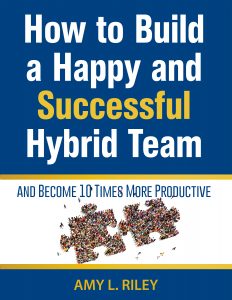
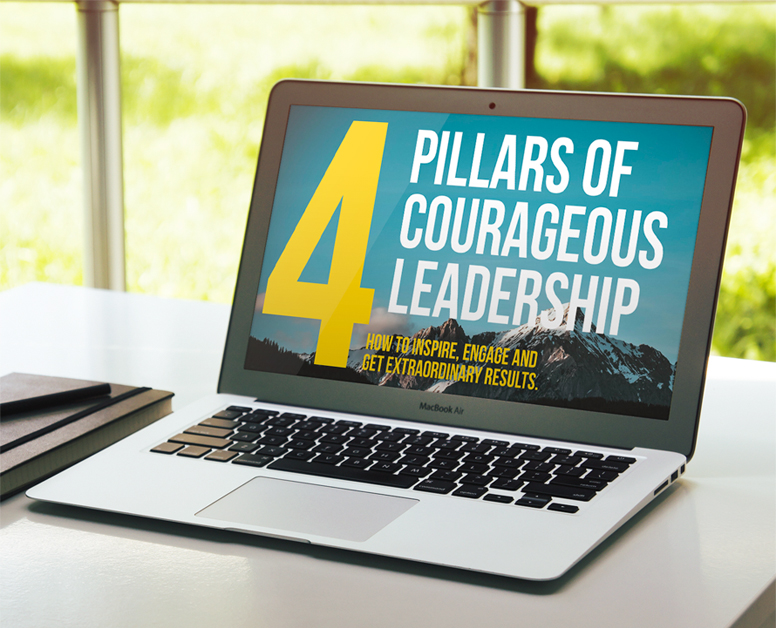 A Summary of The Courage of a Leader® 4 Pillars
A Summary of The Courage of a Leader® 4 Pillars